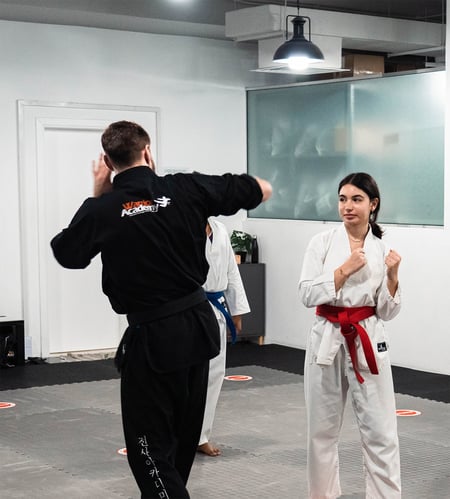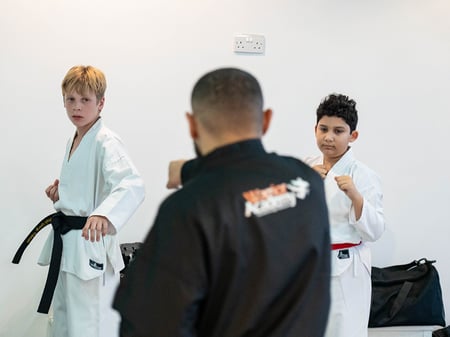In today's fast-paced and digitally-driven society, the ability to concentrate has become a pivotal skill for young individuals navigating the complexities of education, personal development, and the onset of the digital age. For pre-teens and teens, developing robust concentration skills is not just about academic success; it's about cultivating a foundation for lifelong learning and adaptability. This article delves into the essence of concentration skills for pre-teens and teens, offering strategic insights and practical advice to bolster focus and productivity.
Understanding Concentration in Pre-Teens and Teens
Concentration, or the ability to focus one's attention on a specific task while ignoring distractions, is a critical cognitive skill that develops and matures alongside young individuals. During the pre-teen and teenage years, the brain undergoes significant growth and restructuring, impacting attention span, impulse control, and the capacity for focused thought. Enhancing concentration skills during these formative years can lead to improved academic performance, better problem-solving abilities, and increased self-confidence.
 Challenges to Concentration in the Digital Age
Challenges to Concentration in the Digital Age
The digital age has introduced a myriad of distractions that can impede concentration, from social media and instant messaging to online gaming and streaming services. These distractions can fragment attention spans, making sustained focus a challenge for many young people. The constant barrage of notifications and the allure of digital content can disrupt study sessions, reduce productivity, and lead to a sense of overwhelm.
Strategies to Enhance Concentration
- Creating a Conducive Environment: Establish a quiet, organised workspace free from distractions. Encourage the use of ergonomic furniture and good lighting to make the study area as comfortable and inviting as possible.
- Time Management Techniques: Teach pre-teens and teens to use time management tools, such as planners and timers, to allocate specific time blocks for focused work. The Pomodoro Technique, which involves working for 25 minutes followed by a 5-minute break, can be particularly effective in maintaining high levels of concentration over longer periods.
- Mindfulness and Meditation: Mindfulness exercises and meditation can significantly improve concentration by training the brain to focus on the present moment. Encouraging regular practice can help young individuals develop the ability to tune out distractions and centre their attention on the task at hand.
- Healthy Lifestyle Choices: Diet, exercise, and sleep play crucial roles in cognitive function and concentration. A balanced diet rich in omega-3 fatty acids, regular physical activity, and adequate sleep can enhance brain health and improve focus.
- Limiting Digital Distractions: Establishing clear guidelines around the use of technology can help manage distractions. Encourage scheduled tech breaks and promote digital detox periods, especially during study times and before bed.
- Cognitive Exercises: Engaging in activities that challenge the brain, such as puzzles, reading, or learning a new skill, can strengthen concentration abilities. These activities enhance neural connectivity and promote mental agility.
Implementing Concentration Skills in Daily Life
Incorporating concentration strategies into daily routines requires consistency and commitment from both pre-teens/teens and their caregivers. Start by setting realistic goals and gradually increase the complexity of tasks to build endurance for prolonged focus. Celebrate achievements and progress to motivate continued effort and improvement.
 The Role of Parents and Educators
The Role of Parents and Educators
Parents and educators play a pivotal role in developing concentration skills. They can model positive behaviours, provide structured environments, and offer guidance and encouragement. Additionally, they can monitor for signs of excessive stress or anxiety, which can negatively impact concentration, and seek professional support if necessary.
FAQ
How can I tell if my child has a concentration issue?
Signs may include difficulty completing tasks, frequent distractions, trouble following instructions, and poor academic performance. If these issues persist, consider consulting a professional for an assessment.
Can too much screen time affect concentration?
Yes, excessive screen time can lead to digital distraction, reducing the ability to concentrate on non-digital tasks. It's important to balance screen time with offline activities.
How long should study sessions last for teens?
Study sessions can vary, but starting with 25-30 minute intervals followed by short breaks can be effective. Adjust the duration based on the individual's age and concentration capacity.
Are there any foods that can help improve concentration?
Foods rich in omega-3 fatty acids (such as fish), antioxidants (berries, nuts), and whole grains can support brain health and enhance concentration.
What should I do if traditional methods to improve concentration don't work?
Consider seeking advice from educational psychologists or specialists. Sometimes, underlying issues like ADHD may affect concentration and require professional intervention.
Conclusion
Developing strategic concentration skills in pre-teens and teens is essential for navigating the challenges of modern education and life. By understanding the importance of focus, addressing potential distractions, and employing targeted strategies to enhance concentration, pre-teens and teens can significantly improve their ability to concentrate. This not only aids in their current academic and personal pursuits but also lays a solid foundation for future success in an increasingly complex world. Encouraging and supporting young individuals in developing these skills can make a profound difference in their lives, fostering a sense of achievement, confidence, and the ability to navigate the challenges of adulthood with resilience and adaptability.
As we move forward, it's crucial for parents, educators, and society as a whole to prioritise the cultivation of concentration and focus skills among the younger generation. Through concerted effort, understanding, and patience, we can equip our pre-teens and teens with the tools they need to thrive in any environment, ensuring they have the capacity to focus deeply, think critically, and excel in their chosen paths.
Want to learn which area of your child's life needs the most support? Take our Breakthrough Area Assessment by clicking the link below now.


